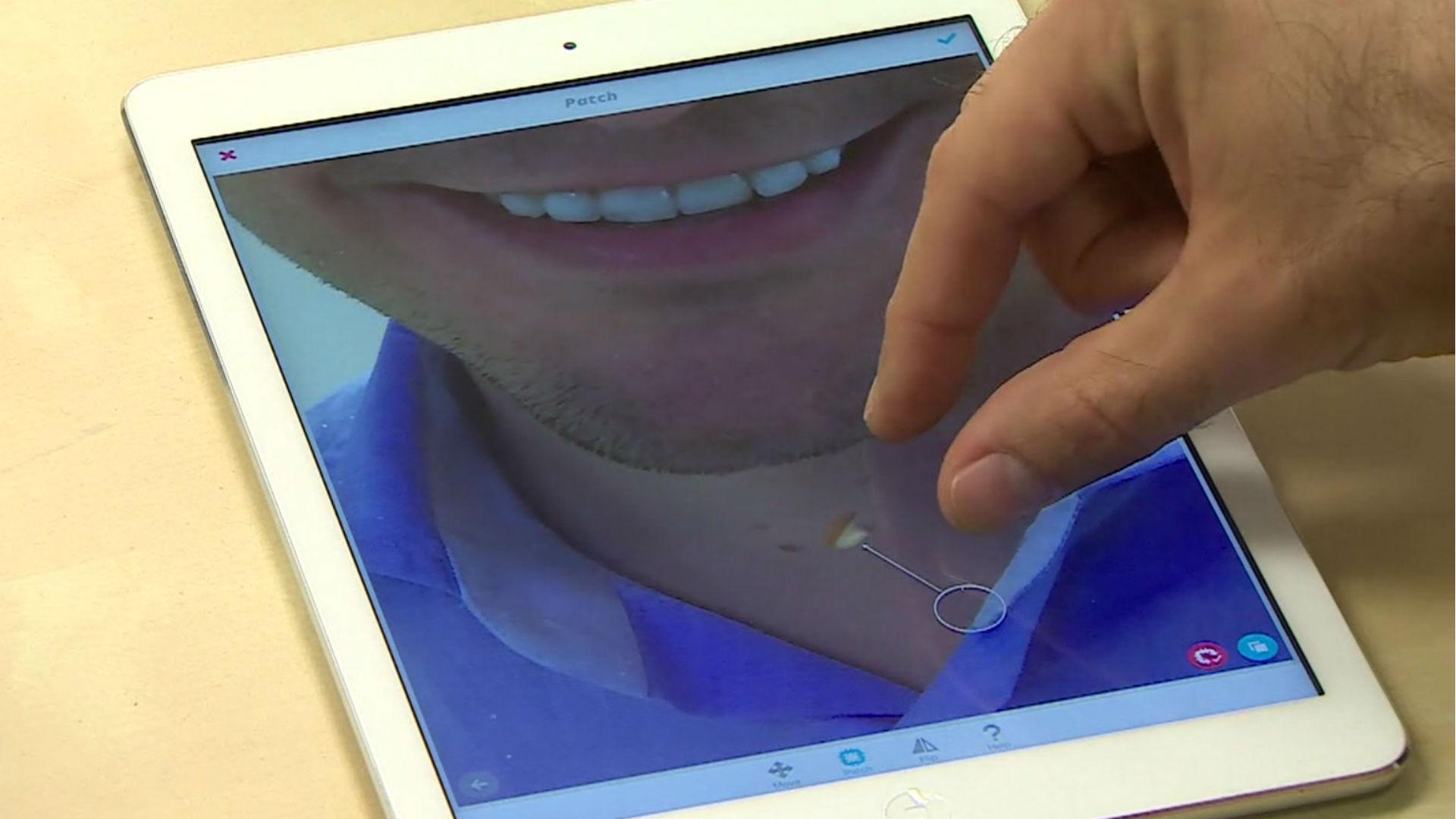Behind the apps: Why we want to look different online
- Published
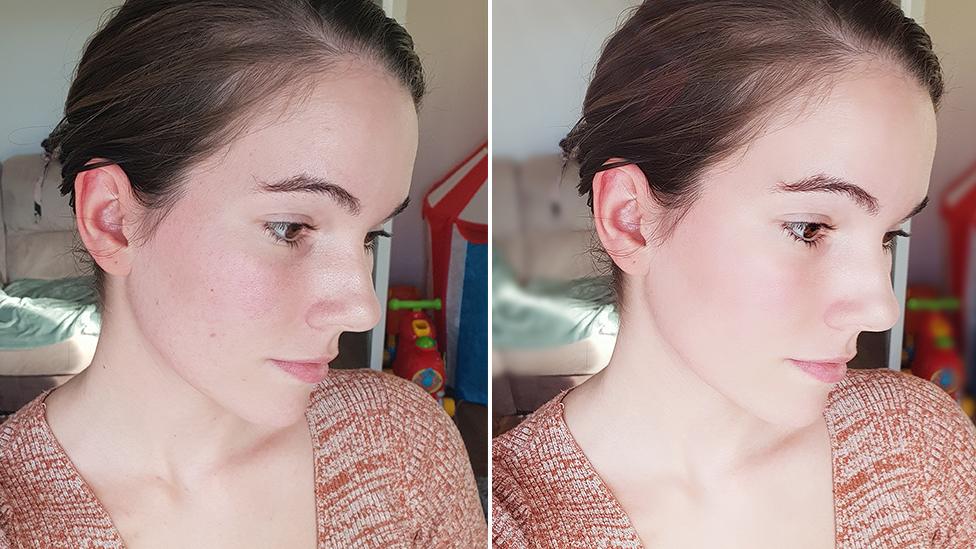
Monica Agrezzi - before and after using a photo-editing app
Scroll through some of your friends' pictures on social media. Can you spot any differences to when you see them in person?
A slimmer waist, whiter eyes or maybe smoother skin?
These are some things three people told BBC Wales that they change about their body with photo-editing apps.
Swansea University psychology professor Dr Alex Jones said that research shows airbrushed images can "damage the way people think about themselves".
One of the photo-editing apps, Facetune, described as a "powerful portrait retouching application", has more than 835,800 downloads in the UK in 2018.
It is currently amongst Apple's top 10 paid apps, with most users aged between 21 - 34 and 70% are female.
But some people using the software are accused of being "catfishes", which is someone with social media pictures so misleading that they do not resemble the real you.
So why are people in Wales using the apps?
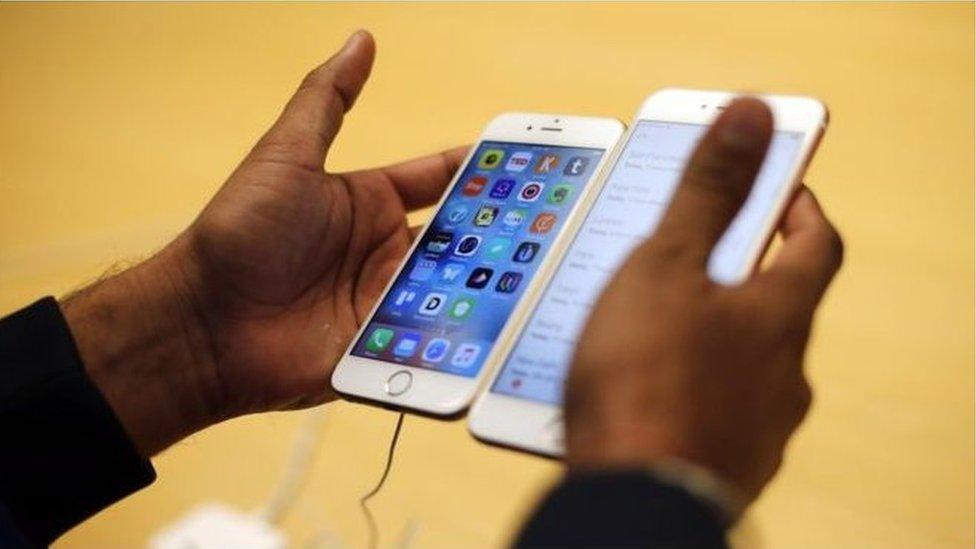
Facetune had more than 835,800 downloads in the UK last year
'I've got a mummy tummy'
Monica Agrezzi, 24, from Barry, uses the Airbrush app to get a slimmer waist and take away the acne scarring on her face in her photos on Instagram.
At first photo editing was just to get more likes and followers, but now it has become "a bit of fun" and she said using it make her feel better.
"I've got a mummy tummy, as they say," she said.
"Anyone I know, knows what I look like. But when I edit my photos I can get a bit carried away because I love editing and my self esteem can be low at times."
The make-up artist said that when she was younger she was very self-conscious about her skin, but now she feels more confident.
'My pictures get more likes when I use FaceTune'
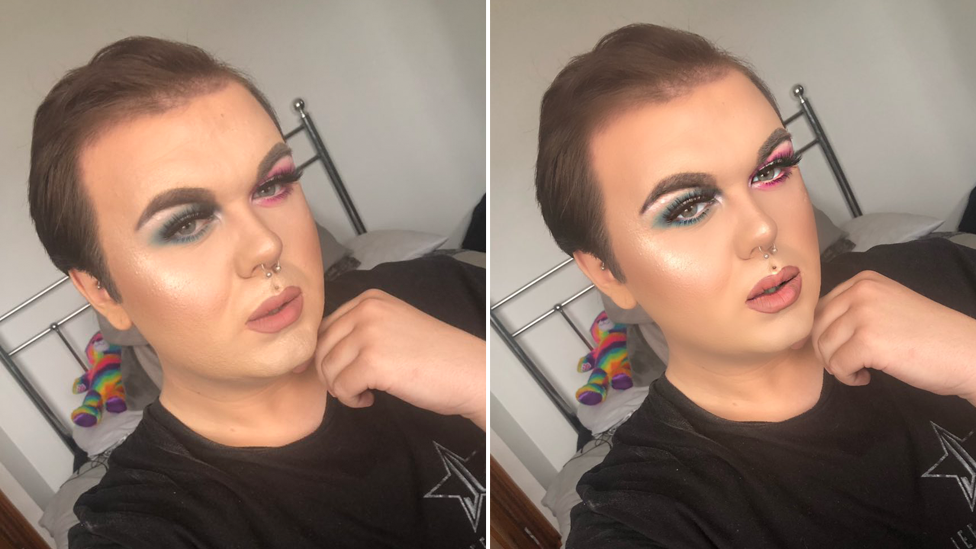
Kieran uses Facetune about three times a week to edit selfies
Kieran Crump, 22, from the Rhymney Valley also agrees that the apps boost confidence.
About three times a week, he sits down to take about 40 selfies before selecting the best one to edit on FaceTune and post online.
He edits to bring his hairline down, whiten his eyes and smooth his skin pigmentation so his stubble is less obvious.
"I can fix some of the things I don't like, or the things that people want to see," he said.
"In the social media world, everyone wants to look their best and look like Kylie Jenner. It is very difficult to find anyone who isn't photoshopped."
He first got the app a year ago and said it has made his make-up styles look more professional, and he now get more likes on social media.
'I'm scared of being perceived as a catfish'
But Penarth fashion blogger Gabby Harding, 21, who uses Airbrush, feels that many people don't like "false portrayals" on social media.
She said she was a "reluctant" user of the app but used it to erase her spot break-outs on her face.
"Editing can make you feel insecure. It would be a thought in my head that I don't look anything like I do [in person]," she said.
"I am very scared of being perceived as a catfish."
Even though the apps aren't essential for her, she feels that photo editing will "always be a thing" for people now.
- Published31 July 2018
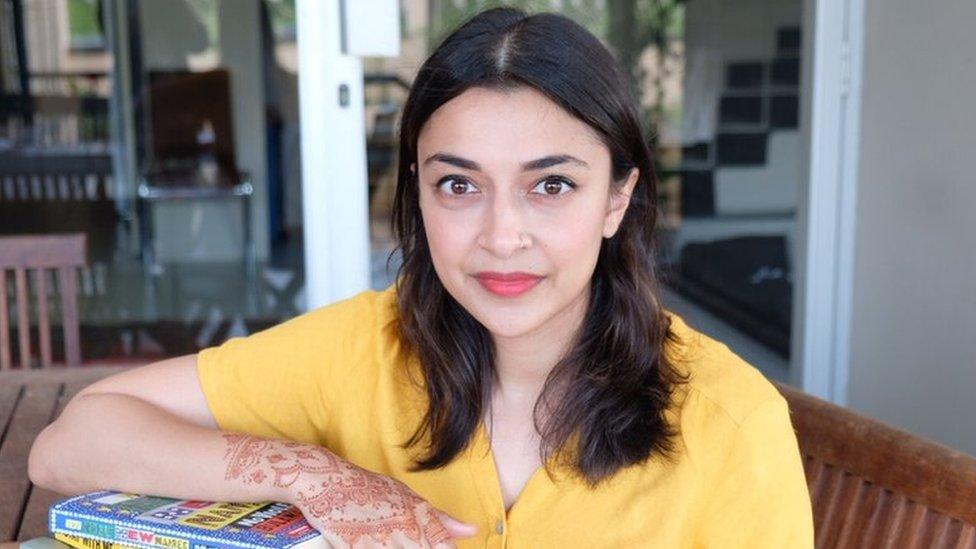
- Published12 September 2018
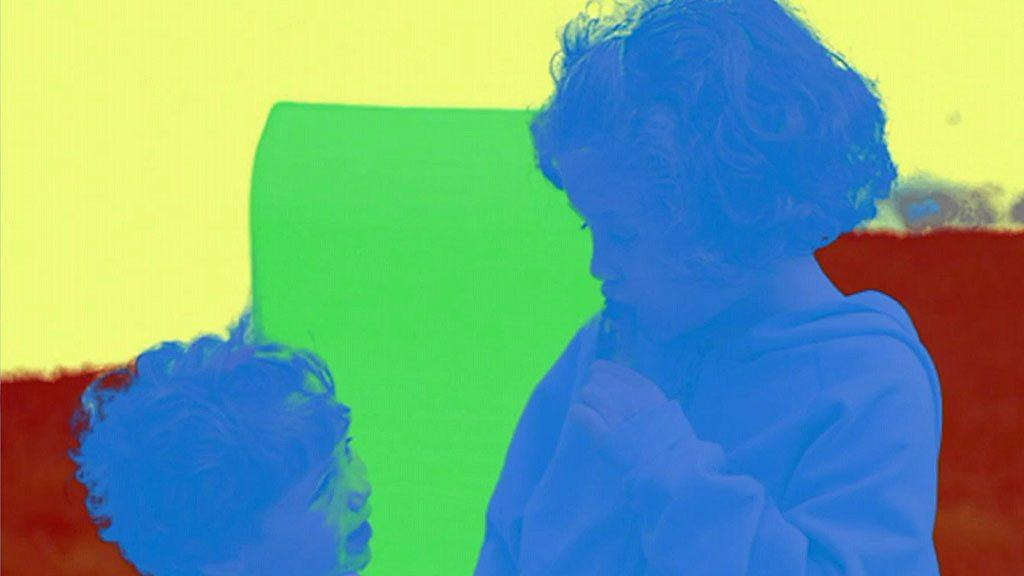
- Published26 September 2014
